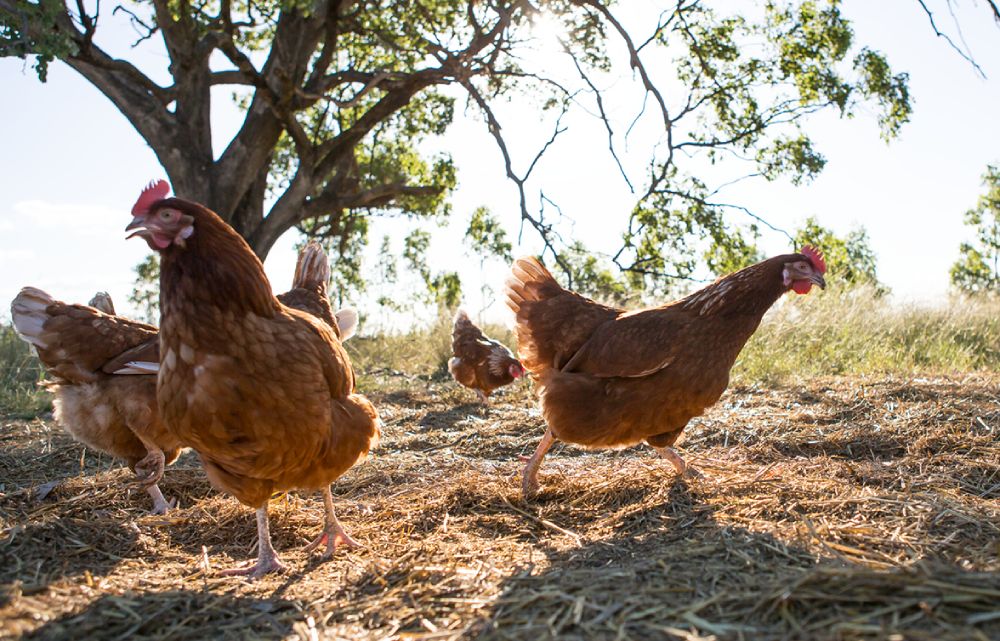
IMAGE CREDIT : WESTERN AUSTRALIAS AGRICULURE AND FOOD SECTOR
Canadian Pension Funds’ Investments Grow in Australia’s Farmland Sector
Australia is the smallest continent in the world with a total area spanning around 8.56 million sq km, but its vast farmlands have been attracting the attention of Canadian pension funds, which are making a beeline to the Oceanic region’s nation to make sustainable investments in its agriculture and farming in the post COVID-19 era.
The Australian agricultural sector’s gross value is $75 billion as of 2020-2021, according to the Department of Agriculture, Water and Environment (DAWE) and around 72% of the agricultural produce is exported.

CEFC and CDPQ’s experience—combined with Gunn Agri Partners’ recognised expertise as a land operator—will enable them to aggregate and manage farmland in the attractive Australian market, in line with regenerative agriculture practices.”
Australia’s meat (beef, veal, mutton and lamb), grain (wheat, in particular), horticultural outputs (table grapes, citrus, nuts and stone fruit) and oilseed are high-value exports to Asian, the US and European markets.
The Canadian pension funds include Caisse de depot et placement du Quebec (CDPQ), Alberta Investment Management Corporation (AIMCo), Ontario Teachers’ Pension Plan, and the Public Sector Pension Investment Board (PSP Investments).
CDPQ, which is Canada’s second largest pension fund with assets worth around $295 billion under its belt, has partnered with the Clean Energy Finance Corporation (CEFC) to establish a new $186.55 million sustainable agricultural platform in Australia in July 2023.

“Timberscombe’s sale allows us to redeploy capital into growth and development projects that are better suited to the company’s expanding strategic scope, and to pay a small distribution to investors as a thanks for their support so far.”
Of this, CDPQ’s share is $100-million and the rest from CEFC, which will be invested in Wilga Farming, managed by Gunn Agri Partners, to decarbonise the Australia’s farming sector and noost the agricultural production simultaneously.
Emmanuel Jaclot, Executive Vice-President and Head of Infrastructure at CDPQ said that the CEFC and CDPQ’s experience—combined with Gunn Agri Partners’ recognised expertise as a land operator—will enable them to aggregate and manage farmland in the attractive Australian market, in line with regenerative agriculture practices.
AIMCo’s Investments
AIMCo, Canada’s another institutional investor, and its investment partner New Agriculture, has acquired the Kimberley Cattle Portfolio (Yougawalla Pastoral Co and Argyle Cattle Co) in Western Australia in November last year. The Kimberley Cattle Portfolio is a large-scale cattle breeding business that spans almost 3 million hectares in the Kimberley region of Western Australia.
The portfolio consists of seven pastoral leases (1,828,692 hectares), and five sub-leases (924,325 hectares), as well as an agreement over 153,475 hectares. AIMCo has also invested in Australia for many years, in forestry and in agriculture through the acquisition of mixed farming business, Lawson Grains in January 2022.
Similarly, the Australian agricultural arm of the Ontario Teachers’ Pension Plan and its Australian agriculture subsidiary, AustOn Corporation, has acquired a majority stake in Mitolo Family Farms, Australia’s largest potato-growing businesses and the operator of 26 farms in South Australia and New South Wales.
The Public Sector Pension Investment Board (PSP Investments), which is one of Canada’s largest pension investors with $103.24 billion of net assets under management as of 31 March 2023, too made substantial investments in Australian agriculture.
PSP Investments has been the most active foreign investor in the Australian farming sector, having acquired assets ranging from macadamia nut plantations to water rights. It has consolidated the management of its two majority-owned Australian broadacre cropping businesses – BFB and Daybreak Cropping — under the leadership of the current BFB senior management team in April 2022.
With this, PSP investments created one of the leading cereal cropping operations in Australia, with 41 farms across 10 aggregations in four states. It has also acquired a walnut farm in Australia through its investment in the publicly listed Australian agricultural company, Webster.

PSP Investments also acquired more than 8,000 hectares of farmland in New South Wales from Duxton Farms for $45.74 million in April this year, a month after it bought a majority stake in an egg farming business, Ellerslie Free Range Eggs, reportedly for $117.61 million.
Duxton, the only publicly listed farming enterprise in Australia that cultivates both crops and livestock, said it had sold its Timbercombe property to Altora Ag, a joint venture between BFB and Daybreak Cropping.
Duxton Farms chairman Ed Peter said that Timberscombe has been a significant part of Duxton’s broadacre farming portfolio since 2008, and it has been a fantastic asset for his company.

“Our investment in Ellerslie is very much aligned with their approach of investing alongside best-in-class, local operators who share our values, long-term horizon and commitment to sustainable farming.”
“Timberscombe’s sale allows us to redeploy capital into growth and development projects that are better suited to the company’s expanding strategic scope, and to pay a small distribution to investors as a thanks for their support so far,” he said.
Ellerslie Free Free Range Eggs is located in the Darling Downs region of Queensland, and is one of Australia’s biggest producers of eggs. Ellerslie also owns a 50% interest in Sunny Queen – One of Australia’s largest egg processors and distributors – as well as the Yallamundi Farm pastured-raised and organic eggs brand.
Ellerslie CEO and Managing Director Greg Quinn said that it will be business as usual and we know that PSP Investments’ global scale will help us accelerate our plans to significantly increase cage free production in the coming years.

“It will be business as usual and we know that PSP Investments’ global scale will help us accelerate our plans to significantly increase cage free production in the coming years.”
Senior Managing Director, Real Assets, and Global Head of Natural Resources at PSP Investments Marc Drouin said that their investment in Ellerslie is very much aligned with their approach of investing alongside best-in-class, local operators who share our values, long-term horizon and commitment to sustainable farming.
Sustainable Investments
Apart from providing stable returns, the investments into Australian farmland also accelerates the global demand for sustainable agriculture and decarbonisation. Currently, most agriculture production globally is managed by family farmers, including in Australia.
Investment in the land and production of meat and crops for export can add to the value chain of Australia’s agricultural sector.
According to a report from the Australian Bureau of Statistics, Australia has 377 million hectares of agricultural land with 87,800 businesses. The land use by agricultural output includes livestock grazing on 325 million hectares, crops use 31 million hectares and forestry occupies 0.7 million hectares.
Potentials for Investment
Centuria Capital Group, the specialist investment manager listed on Australian Securities Exchange (ASX), said that about half of all vegetable growers sell their produce to a wholesale vegetable market. The larger farms have a more significant share of vegetables being sold directly to retailers and they earn larger cash incomes compared to farms selling in other markets.
Australia is also a net exporter of vegetables like broccoli, celery, lettuce, carrots and mushrooms. Investing in eco-friendly farming that enables traceability, high quality and great taste can help keep vegetable exports up. Additionally, local consumption of vegetables and other food products will underpin fluctuations in the export market due to supply chain disruptions, Centuria said.
Agriculture-related industries like production, packaging and supply chain are also potentials for investment. The research and development of these industries have not only improved our agricultural export’s global competitiveness but also generated scalable agriculture technology (AgTech) and Food Tech solutions.
“As developing nations’ middle-class populations expand — with a taste for wider varieties of food and soft products and an eco-consciousness to their consumption habits — the Australian agriculture sector is well-positioned to grow in value. At the same time, government and the private sector buoy agriculture by a shared interest in innovation to mitigate challenges and help it remain globally competitive,” it added.










